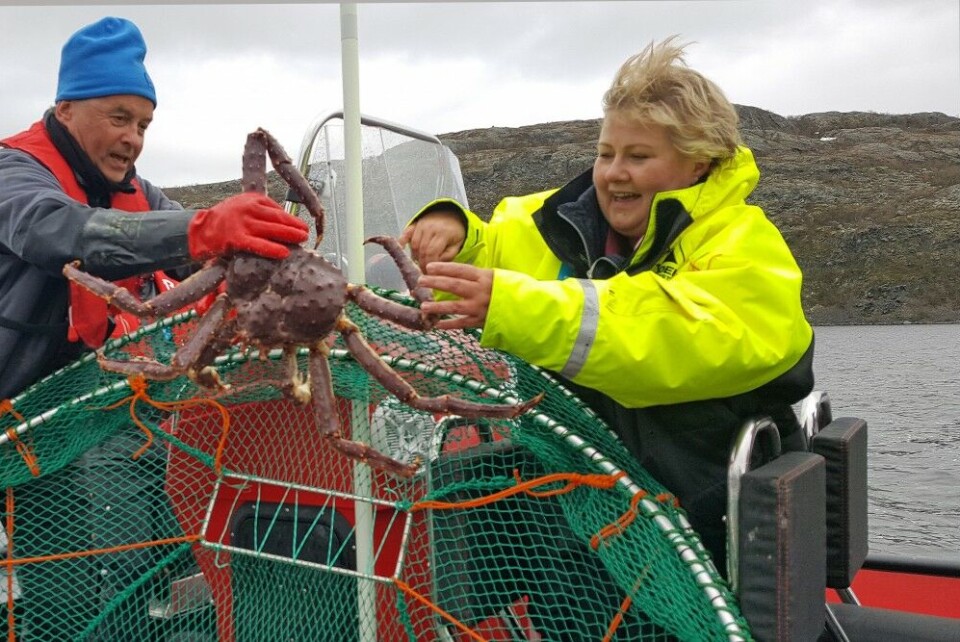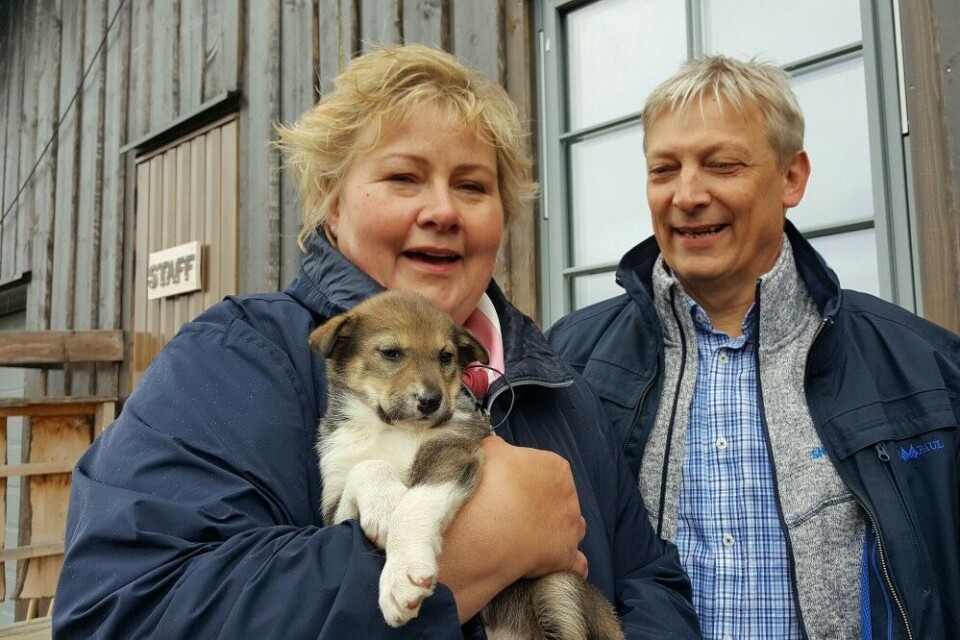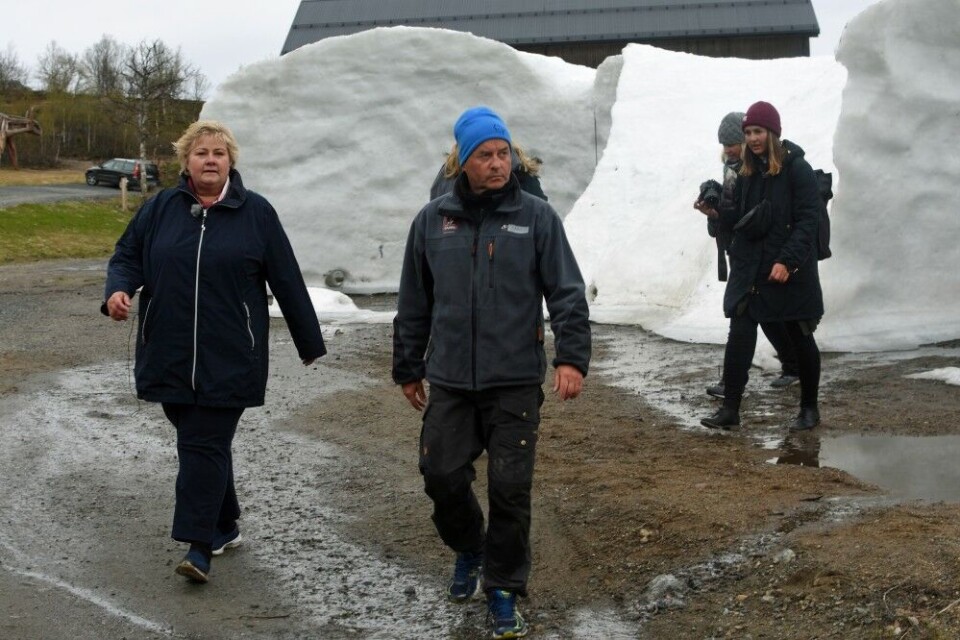
Government eases rules for tourist king crab catching
King Crab safari in Norway's northern waters is a fantastic tourist experience, says Prime Minister Erna Solberg.
«Finnmark is ambitious and forward-looking and is creating new jobs. It is fantastic to see how tourist businesses have developed new adventures attracting travellers from far away,» Erna Solberg said to the Barents Observer when she was out on the fjord on Norway’s Barents Sea coast on Tuesday catching king crabs.
Bacuase of its large size and tasty meat, this delicacy from Arctic waters have become word famous on exclusive dinner tables around the globe.
Prime Minister Solberg hopes the giant crab, along with other adventures in the high north, will give Arctic tourism yet another boost.
«There are so many experiences, so many adventures you can do, with the sea, with the snow, both in the wintertime and summertime. This is also a place where you can come and find silence which is something that is in demand in a lot of countries in the world,» Solberg said.
Prime Minister Solberg was invited to join the staff at Kirkenes Snowhotel sailing out to sea and catch king crabs.
Kåre Tannvik, Adventure Developer with the Snowhotel was more than pleased with the new rules Prime Minister Solberg announced on behalf of the Government.
«Regulations for catching king crabs were made for the commercial fishermen, not for us working with tourism,» Kåre Tannvik explains.
Until now, the crab safari business had many more visiting tourists lining up than their quota allowed them to catch. In Norway, less than 1% are caught by tourist businesses.
The new guidelines announced by the Government imply a significant simplification by granting annual licenses to companies, as well as simplified logging while fishing. An individual company will be able to catch up to 500 king crabs per month, depending on the number of tourists on board their vessels.
Øyvind Sollie, Managing Director of Kirkenes Snowhotel, explains how important king crab tourism is for local economy. «A typical three kilogram crab gives a fisherman an income of some 400 to 500 kroner. For us, however, the added value by catching one crab is 3.000 kroner.»
Many of the crabs taken in the Barents Sea end up on five-star restaurant tables in New York, London and Shanghai.
«Instead of sending the crabs by plane across the globe, we bring the customers here. Crabs taste even better when you catch it yourself and participate in the cooking,» Kåre Tannvik says.
Also, it creates more jobs. When visited by Erna Solberg on Tuesday, the snow hotel itself was melting away, and for Sollie and Tannvik creating adventure activities in the summer period secure year-around workplaces.

With the crash in iron-ore prices, the local mine in Kirkenes was closed some years ago and the local workforce is now more and more turning to tourism.
«We can offer something different,» says Kåre Tannvik. He and the staff at Kirkenes Snowhotel are targeting the high-end of the fast growing global travel market.
«Our guests have been seen the beaches and palms. How fun is it to visit yet another beach,» Tannvik asks rhetorically.
«Here in the north, we have real snow, real fun, real adventure challenges. Our guests have fun, snow-fun, they can be childish again,» Kåre Tannvik smiles.
«Playing in the snow, making a snowman with carrot nose, and sleep in the Snowhotel where temperatures are below zero, that is a story to tell when coming home.»

















